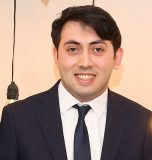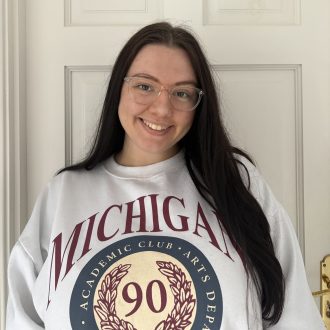Name: Bana Abu Zuluf
Email:
[email protected]
Funding: Hume PhD Scholarship, Maynooth University
Thesis Title:
A Critical Analysis of People-to-People Projects in Palestine: The Myths of Peacebuilding and the Normalisation of Injustice in the Israeli Settler Colonial Context
Supervisor:
Prof John Reynolds
Abstract:
The Oslo Peace Process in Palestine/Israel has been widely critiqued by Palestinian civil society for its failure to address core issues of sovereignty, justice, and human security. A notable legacy of Oslo has been the proliferation of People-to-People (P2P) peacebuilding initiatives, designed to foster reconciliation through dialogue and coexistence between Palestinians and Israelis. These projects, rooted in Track II diplomacy frameworks, have largely operated under the premise that mutual understanding and interpersonal contact can lay the groundwork for peace. However, this thesis contends that such approaches fail to confront the structural asymmetries inherent in a settler colonial regime. Rather than challenging the underlying systems of domination, P2P projects often function as mechanisms of conflict management that depoliticize Palestinian resistance and obscure Israeli settler colonial violence. This research critically interrogates the assumptions, practices, and impacts of P2P projects, drawing on the perspectives of Palestinian participants. It maps the entanglement of P2P with security-driven aid paradigms and explores its implications during a time when Palestinian civil society is advocating for legal accountability through international fora, including the International Criminal Court. By interrogating whether frameworks such as contact theory or conflict resolution can meaningfully operate within asymmetrical and apartheid-like contexts, the thesis contributes to broader debates on decolonial theory, transitional justice, and the limits of liberal peacebuilding in settler colonial settings.
Biography:
Bana Abu Zuluf is a Palestinian PhD scholar and activist whose work lies at the intersection of international law, settler colonial studies, and decolonial theory. Her research critically investigates the politics of peacebuilding in Palestine, with a focus on People-to-People projects and their complicity in the normalisation of injustice under Israeli settler colonial rule. She holds an MA in Inter-Asia Political Studies from SongKongHoe University and a BA in Law. Bana previously served as a Research Fellow at Al-Quds University’s Human Rights Clinic and as an Advocacy Officer for the Good Shepherd Collective, where her legal research on forced displacement has contributed to ICC submissions and international advocacy efforts. Her forthcoming book with Hart Publishing examines the legal architecture of Palestinian Bedouin displacement and indigenous resistance.
Publications:
Abu Zuluf,B., Panepinto, A. (Forthcoming). “Global Governance and Palestine: The Paradox of Remaining 'High on the Agenda',”
Handbook on Global Governance, Edward Elgar Publishing
Abu Zuluf, B., Kilani, L., & O'Rourke, C. (Forthcoming). "Demystifying Decolonization: Reclaiming Palestinian Authorship of Their Destiny." Sage Journal.
Abu Zuluf, B., & Amara, A. (2025). "Active Settler Frontiers: Shifting Israeli Borders and the Forced Displacement of Palestinian Bedouin Communities." Hart Publishing.
Panepinto, A., Abu Zuluf, B., Amara, A., Browne, B., Nuseibah, M., & Mariniello, T. (2025). "Ending Impunity for International Law Violations: Palestinian Bedouin at Risk of Forced Displacement." Hart Publishing.
Abu Zuluf, B., & Faleh, A. "Amid Ashes and Blood, the Palestinian Authority Carves Its Claim on Gaza." Mondoweiss. 2024
Abu Zuluf, B."International Law Beneath the Rubble: Academic Complicity in Gaza Genocide." Opinio Juris. 2024
Abu Zuluf, B., Bresnihan, P., & Rowan, R. (2024). "Decolonising Palestine and Unsettling Environmental Justice." Rundale Journal.
Abu Zuluf, B., Abu Eisheh, J., Qannam, S., & Distretti, E (2018). "Jerusalem Urban Lexicon: The Jerusalem of Things." Bom Dia Books.
Name: Obele Tom George Akinniranye
Thesis Title: Research topic: Exploring the legal ecosystem surrounding Artificial intelligence: Using the European Union as a case study to evaluate the effectiveness of the AI Civil liability Directive as it relates specifically to Humanoids (Autonomous Intelligent Robots).
Supervisor: Dr David Cowan
Abstract: The recent European Union Law on Artificial intelligence has four sliding categories of risk and numerous provisions that encourage innovation. In this thesis, I discuss the applicable duty of care as regards these risks particularly as regards autonomous robots known and referred to as humanoids. I take into consideration the need for any proposed scheme of liability to harmonize existing tort law valuation whilst acting as an incentive to innovation. I shall evaluate the distinction between types of autonomous intelligent robots and their associated risk categories. I shall propose a strict liability regime exploring personal injury and death and formulate a bespoke fault-based regime for other injuries suffered.
The proposed approach to regulation is to have a sliding scale with the rules based largely on risk, so the higher the perceived risk, the stricter the rules. The fundamental of the Act is a categorization system that determines the level of risk an AI technology could pose to the health and safety or fundamental rights of humans and its impact assessment for purpose of non-contractual liability. I shall review whether there is a need for a novel regime taking into consideration that humanoid as a programmed AI does not substantially increase the existing risk where in compliance with extant risk impact assessment procedures to justify an exit from the current civil liability regime.
Keywords: Artificial intelligence act, Civil liability, impact assessment, risk, Autonomous intelligent robots, Humanoids, Duty of care, presumptions
Biography: Obele Akinniranye is a PhD Research student Law, a law tutor, a Notary Public and a Barrister and Solicitor of the Federal Republic of Nigeria. Obele’s research interests are primarily in Information Technology Law, Data Protection Law, and Artificial Intelligence Law with emphasis on autonomous intelligent robots. Her research work which is pioneering in nature addresses fundamental analytical questions in the current civil liability regulatory framework and governance of Artificial Intelligence and its deployment within the European Union in the sphere of Autonomous intelligent Robot including outlining the safeguards and understanding the demands of innovation, creativity and equality in the technology economy. As a PhD researcher in Robotics arm of Artificial Intelligence Law, she delves deeply into the interdisciplinary world of Artificial Intelligence with her area of intersection being AI Ethics, Regulatory compliance, sustainable development goals and understanding and reviewing the societal and legal implications of AI. Her research delves into legal aspects of Society and AI seeking to incorporate the people process technology balances in the AI implementation process, reviews the Civic liability directive regulatory Framework for the Irish state and the EU level, its impact assessment considerations in the computation of damages.
Name: Shauna Philomena Armstrong
Email: [email protected]
Funding: TUSLA Child and Family Agency Further Education and Training Award
Thesis Title: Children in Care and Their Overrepresentation in the Criminal Justice System: An Exploration of the Intersection Between the Risk Factor Prevention Paradigm, the Care System and Involvement with the Criminal Justice System
Supervisor: Dr. Etain Quigley
Abstract:
To fate, there has been no specific research in Ireland which focuses on the link between the care system, the Risk Factor Prevention Paradigm, specific risk and protective factors for young people in care. This is important as identifying these risk and protective factors that are specific to young people in care will ultimately contribute to evidenced based policy developments which will subsequently assist with reducing the overrepresentation of young people in care within the criminal justice system. The Risk Factor Prevention Paradigm ultimately is a tool used to identify the key risk factors for offending to implement prevention methods used to counteract them. With such an approach being used, not only to identify variables to be targeted, but also to identify persons to be targeted by an intervention programme. Typically, things such as low intelligence, low empathy, impulsiveness, family problems, abuse and neglect are identified as factors likely to put a person at greater risk of getting into trouble. As such, it is fair to say that children in care are automatically placed into this category of at risk individuals by the sheer nature of being in the care environment. Therefore, it can be argued that the Risk Factor Prevention Paradigm is a blunt instrument to use in relation to children in care. As such, I intend to use the Risk Factor Prevention Paradigm as inspiration to develop a more applicable risk and protective model that is more sensitive to the particular circumstances of children in the care system.
Biography:
Having spent 12 years in the care system herself, Shauna offers a unique perspective to her research. Shauna has spent the last few years being a strong advocate for young people in the care system by telling her story so that others do not feel alone in their struggle. Shauna set out on her journey to incite change in the care system by firstly obtaining a PLC in Legal Studies from Drogheda Institute of Further Education. She then obtained a BCL Law and Criminology Undergraduate Degree from Maynooth University and most recently, she obtained a MA in Comparative Criminology and Criminal Justice Postgraduate Degree from Maynooth University. Shauna actively participates in both policy and practical areas of the care system. She sits on an Advisory Committee to the Board of Management at TUSLA HQ, she is a member of the National Children in the Care of the State and the Education System Working Group at DCU, and sits on the North County Dublin Foster Carer Review Board. Shauna also holds a position in the Department of Justice where she deals with Tribunals and Commissions of Inquiry.
Name: Rachel Brannick
Email: [email protected]
Thesis Title: Conflict-related sexual violence and the digital evolution – assessing the impact of the use of technology on conflict-related sexual violence.
Supervisors: Dr. Ian Marder and Dr. Amina Adanan
Abstract: Conflict-related sexual violence is a phenomenon which devastates civilian populations and has lasting implications beyond the serious physical violation. Its occurrence has been observed since ancient times and has been ubiquitous with war, although its prevalence has varied dependent on the context. Meanwhile, the evolution of technology has affected conflict-related sexual violence. For example, digital recordings of propaganda related to sexual violence and sexual abuse imagery have been actively distributed by perpetrators during armed conflict on social media platforms to disseminate a message of fear to the broader community and to glorify these acts to supporters. This practice incites further acts of sexual violence and normalises the practice of rape during war. Further to this, the willingness to project these views and acts to the masses through online activity supports the contention that military personnel and militia groups act with impunity, particularly in relation to sexual violence. International criminal law has faced challenges in contending with sexual violence during war, and the 1990s presented a paradigm shift in legal responses to the phenomenon and repositioned perspectives and understandings of the issue. Although significant progress has been made in prosecuting perpetrators of conflict- related sexual violence the evolution of technology and the development of the online world has presented new challenges and opportunities for international criminal law which alter the landscape of the crime and responses required to counter it. This PhD will address these questions, combining doctrinal and empirical research to explore how technology affects conflict-based sexual violence and the implications for legal responses.
Biography: Rachel is a current PhD researcher in the School of Law and Criminology. She began her academic career at Maynooth University by completing a micro credential in Addiction Studies, graduating with first class honours in 2020. In 2024 she completed a Bachelor of Arts degree in Psychology and Criminology at Maynooth University and continued on to the Master of Arts degree in Comparative Criminology and Criminal Justice where she will graduate with first class honours in 2025. Her MA dissertation focused on the casual factors underpinning conflict-related sexual violence and the legal responses to the phenomenon. From this work and developing situations across multiple conflicts her current study emerged as an under-researched area requiring academic focus.
Rachel has worked as a research assistant with the School of Law and Criminology under the supervision of Dr. John Morrison who expertise lies in the field of terrorism, where she assisted in the organisation of the Society for Terrorism Research Postgraduate Conference and has also contributed to two ongoing academic projects.
Rachel has volunteered with the community-based programme Circles of Support and Accountability (CoSA) since 2022. Through this agency which is partnered with An Garda Siochána and the Probation Service she has contributed to supporting individuals with convictions for sexual offences to reintegrate back into society safely while preventing further victims of sexual violence. This practical experience has provided her with extensive skills which have informed her academic direction and future career interests.
Name: Chloë Cass BL
Email: [email protected]
Thesis Title: Left out in the cold: the vulnerable plaintiff in the Irish Civil System
Supervisor: Dr Sinéad Ring
Funding: Irish Research Council Postgraduate Scholarship Programme
Abstract:
Victimhood in Ireland has a particular legal meaning. A victim is 'a natural person who has suffered harm including physical, mental or emotional harm or economic loss, which was directly caused by an offence’.1 With this title comes a package of legal rights which recognise victimhood, allow for active participation and confer protections such as a right to avoid contact with the offender. If you have suffered a harm and it is not recognised as a crime, you will not attract victim status. Given that the same harm can give rise to both a tort and a crime, it begs the question “Should a plaintiff be recognised as having victim status?”.
This project will consider what justifies a distinction between criminal law and tort law, which in turn legitimates victims of crime gaining legal protection but not victims of torts. It will propose an alternative framework using theories of vulnerability 2, harm 3 and embodiment 4.
Criminal Justice (Victims of Crime) Act 2017, S 2(1).
Stiina Loytomaki, 'Law and Memory: The Politics Of Victimhood' (2012) 12 Griffith Law Review,1.
Joanne Conaghan, 'Law, Harm And Redress: A Feminist Perspective' (2002) 22 Legal Studies, 322
Lauren Freeman, 'Embodied Harm: A Phenomenological Engagement With Stereotype Threat' (2017) 40 Human Studies.
Biography:
Chloë is a practising barrister, lecturer and tutor. She has a mixed practice on the Eastern Circuit, with a special focus towards personal injuries law, family law and language rights. Chloë graduated with a BCL in Law and Irish from Maynooth University and a Barrister at Law Degree from King’s Inns. She lectures the Legal Diploma in City Colleges as well as the Diploma in Corporate Fraud Investigation. Chloë has also delivered guest lectures in the Law Society and TU Dublin, as well as giving CPD’s for CMG (2021, 2022) and the Bar of Ireland(2021). She tutors in King’s Inns in a variety of subjects including Human Rights, Jurisprudence and Constitutional Law. Chloë has previously tutored in Maynooth and UCD as well as acting as a moot judge for Maynooth and Foras na Gaeilge.
Name: Harry Chikasamba
Email: [email protected]
Funding: School of Law and Criminology Doctoral Scholarship (2024) International Disability Alliance (IDA) 2022 -2024
Thesis Title: Progress on course or on hold? Narratives and counternarratives on OPD participation in decision-making processes
Supervisor: Prof. Delia Ferri & Prof. Malcolm MacLachlan
Abstract: Disability rights are primarily proclaimed, protected and promoted by the United Nations Convention on the Rights of Persons with Disabilities (CRPD). General comments, and Concluding Observations of the UN Committee on the CRPD (CRPD Committee) support interpretation and implementation of the Convention. The CRPD requires States parties to ensure participation of persons with disabilities through their representative organisations (OPDs). However, both the CRPD and the Committee’s jurisprudence have not fully clarified what ‘participation’ means, and has often given contradictory indications on which processes may be considered compliant with the CRPD. This lack of clarity has resulted in governments failing to fully involve persons with disabilities in public policy decision-making processes. My research, which is socio-legal in nature, focuses on addressing this gap by clarifying the scope and depth of the obligations that governments have under the CRPD to ensure meaningful participation of OPDs. The research does this by drawing on international disability law. In addition to clarifying the scope of participation in theory, my research also seeks to develop a taxonomy of existing and potential actions that are necessary to achieve meaningful participation in practice. Thus, my research will impact both knowledge production in academia and facilitate radical social change in how persons with disabilities globally participate in public policy decision-making processes. To achieve this, my study combines doctrinal and qualitative research methods.
Biography: I am a disability law and human rights expert from Malawi, with a Master of Laws (LLM) obtained with Distinction from the University of Leeds in the UK. I worked as a Human Rights Intern with the Committee on the Rights of Persons with Disabilities in Geneva, which exposed me to the inner working of the UN human rights mechanisms and sharpened my understanding of the dynamics at play. I have also engaged with the World Blind Union (WBU) as a Human Rights Policy Advisor, where I spearheaded the development of global initiatives in human rights advocacy and policy – primarily revolving around ensuring strict compliance with the CRPD and other international human rights instruments. For a decade, I worked with grassroot organisations of persons with disabilities (OPDs) and a few national human rights NGOs in Malawi, which enabled me to cultivate a comprehensive understanding of the complexities surrounding human rights issues of marginalised populations in the Global South, and this further solidified my commitment to the pursuit of social justice.
Publications:
Conferences:
- Harry CHIKASAMBA, ‘Zooming in the intersection of disability law and climate change: A global and African perspective’ (11th Annual Conference on Disability Rights in Africa, Johannesburg, 20-21 November 2023)
- Harry CHIKASAMBA, ‘Progress on course or on hold? Narratives and counternarratives on OPD participation and social sustainability’ (PhD and Early Career Researchers Conference, Online, 03 May 2023)
- Edister Jamu & Harry CHIKASAMBA, ‘Academic talent development in the face of inclusive higher education in Malawi’ (Annual Conference on Disability Rights in Africa, Pretoria, 6-7 November 2018)
- Harry CHIKASAMBA, ‘Equitable access to higher education in Malawi: A disability perspective’ ((International Conference on Higher Education, Mangochi, 26-27 June 2018)
Name: Chunhyang Chong
Email: [email protected]
LinkedIn: https://www.linkedin.com/in/chunhyang-chong
Twitter: @Chunyangchong
Current Funding: Maynooth School of Law and Criminology Doctoral Scholarship
Thesis Title: The Meaning of ‘Protection’ in International Refugee Law
Supervisor : Dr Bríd Ní Ghráinne
Abstract: This research critically examines the scope, content, and meaning of ‘protection’ in International Refugee Law (IRL). To be recognized as a refugee under IRL, an individual must demonstrate a lack (or failure) of state protection against persecution feared. Over time, the interpretation of IRL has evolved significantly, notably through the human rights approach. For example, the definition of ‘persecution’ initially referred to the absence of diplomatic protection but is now widely understood to encompass severe and systematic violations of basic human rights and lack of state protection. In other words, the criteria for determining refugee status have been changing, and ‘protection’ plays a more critical role in assessing whether one is a refugee.
However, due to the absence of consensus on the meaning of ‘protection,’ its interpretation varies among refugee-receiving states, allowing them to deny refugee status based on their own interpretations. For example, while only states have traditionally been considered actors of protection in IRL, there have been regional asylum laws and case laws where non-state actors (e.g., clans and militias) have been regarded as entities capable of providing protection in certain situations. The rationale often seen to explain these developments includes that refugee law requires evolutionary interpretation because it is a ‘living instrument.’
What do we currently know about ‘protection’? The lack of clarity surrounding this concept raises several important questions. What does ‘state protection’ mean? What level of protection is required from the country of origin to deny one’s refugee status? Can non-state actors fulfil a supplementary role to bridge the protection gaps accorded by the country of origin? What is the interrelation between the principle of surrogacy and the human rights approach? I aim to answer these questions by critically reconsidering the existing approach to IRL.
Biography:
Chunhyang completed her MA in Refugee Protection and Forced Migration Studies at the University of London in 2021 with distinction. In her MA dissertation, she examined how UK case law interprets the concept of Internal Protection Alternative (IPA). Prior to joining Maynooth, Chunhyang worked at the UNHCR Japan as a Protection Assistant (2022-2023) where she conducted various policy and legal analyses.
Name: Maria Cleary
Email: [email protected]
Twitter: @Cleary_Maria4
LinkedIn: Maria Cleary | LinkedIn
Funding: John & Pat Hume Doctoral Awards: Hume Fellow Scholarship (2023-2027)
Thesis Title: The Confinement of Women in Ireland’s Female Prisons: An Ethnographic Study
Supervisor: Dr Joe Garrihy
Abstract: Women who offend are continually marginalised in criminology, penal policy and prison systems. In various jurisdictions, including Ireland, significant contributions have been made to the theoretical and empirical understanding of women’s imprisonment (Carlen, 1983; Hannah-Moffat, 2001; Quinlan, 2006; McCorkel, 2013). However, female imprisonment continues to be a significantly under researched area and, in Ireland in particular, previous empirical studies are now outdated. Ireland’s first gender-informed, female-only prison, the Dóchas Centre - ‘Dóchas’ meaning ‘hope’ in the Irish language – was recently joined by a new female prison in Limerick in October 2023. This has been said to exemplify international best practice, constitute a trauma-informed environment and continues the legacy of an institution of ‘hope’. Nevertheless, both prisons continue to be criticised, with high levels of overcrowding. This highlights that modern research which comprehensively explores Ireland’s female prisons is critically required.
This study aims to address this research and justice gap through 1) exploring the lived experiences and cultures which characterise Ireland’s female prisons, 2) analysing how this develops our understanding of female imprisonment and 3) evaluating what advances can be achieved in penal and social policies regarding the punishment of women who offend. This will be accomplished through a twelve-month period of ethnographic field observation – six months within each prison - combined with semi-structured interviews with prison staff and women in prison. The findings of this research can assist in reducing the marginalisation of this cohort in academic literature and penal policy, creating effective change for female imprisonment and the response to women who offend in Ireland, and internationally.
Biography: Maria is a PhD Researcher in the School of Law and Criminology, Maynooth University. She graduated top of her class with a first-class Bachelor of Arts degree (BA) in Criminology and Sociology at Maynooth University and was awarded the Department of Law State Responses to Historical Gendered Violence Prize in the Maynooth University Prizes and Scholarship Awards 2021. She also holds a masters in Comparative Criminology and Criminal Justice from Maynooth University, attaining a first-class honours grade. In October 2023, Maria was awarded the Maynooth University John & Pat Hume Doctoral Scholarship to begin her PhD research which focuses on the lived experiences and cultures in Ireland’s female prisons.
Maria is a teaching and research assistant in the School of Law and Criminology, Maynooth University. She conducts tutorials on a variety of criminological and sociological modules to undergraduate students and occasionally conducts criminology lectures. She has also developed considerable research expertise, assisting on several criminological projects funded by organisations such as the Irish Research Council, Irish Penal Reform Trust and the Irish Council for Prisoners Overseas. These projects include; ‘The needs and perspectives of Foreign National Prisoners in Irish Prisons’, ‘Employer Attitudes to People with Convictions’, and ‘Education Access for People with Convictions’. Maria has experience conducting interviews with vulnerable populations, including those in several Irish male and female prison environments. Maria also facilitates the provision Story Exchange Project 2025, which is a collaboration between; Gaisce – The President’s Award, Wheatfield Prison and Maynooth University Access Programme Student Volunteers.
Publications:
- Cleary, M. (2022) An assessment of the benefits and challenges of utilising restorative justice for cases of sexual violence. The Dublin University Journal of Criminology, Volume II.
- Doyle, D.M., Garrihy, J., Cleary, M., and Murphy, M. (2023) Foreign National Prisoners and Religious Practice in Irish Prisons. Journal of Human Rights Practice, 15(2), 606-612.
- Doyle, D.M., Garrihy, J., Cleary, M., and Murphy, M. (2024) Foreign national prisoners, discrimination and race relations in Irish prisons. Journal of Criminology, 57(2), 143-160.
- Doyle, D.M., Garrihy, J., Cleary, M., and Murphy, M. (2024) Foreign National Prisoners and Irish Prisons: Evaluating the Need for a Dedicated Service. Maynooth: Maynooth University / Irish Council for Prisoners Overseas.
- Marder, I. et al. (2024) Embedding a Culture of Interdisciplinary Open Research in Criminal Justice: A New Partnership for Ireland. Irish Probation Journal, 21, 159-189.
- Cleary, M., Doyle, D., and Garrihy, J. (2025) ‘You no have to treat me with your hate’: The needs and experiences of female foreign national prisoners in an Irish prison. The European Journal of Criminology, Online First.
Conferences:
- Cleary, M. Confining Women in ‘Institutions of Hope’: An Ethnographic Study of Ireland’s Female Prisons. The Sociological Association of Ireland (SAI) 2024 Annual Conference. Maynooth, Kildare. 9 May 2024.
- Cleary, M. ‘Ireland’s Female Prisons: Researching Confinement in These Institutions of Hope’. North/South Irish Criminology Conference. Belfast, Northern Ireland. 18 June 2024.
- Cleary, M. ‘Totally Lost’: Female Foreign National Prisoners – Navigating the Pains of Prison Life in Ireland. European Society of Criminology Prison Working Group. Timișoara, Romania 2025.
Name: Eoin Coates
Email: [email protected]
LinkedIn: Eoin Coates
Thesis Title: Hypermobility: A critical analysis of worker mobility, employment models and jurisdiction amongst highly mobile workers in the aviation sector.
Supervisor: Prof. Michael Doherty
Abstract:
Europe is designed to be small. Since it’s founding, the European Union has strived to develop the freedom of mobility across Union, but for decades one industry had already been doing this, the aviation industry.
The aviation industry has long challenged the state-centric model of employment law and industrial relations through the natural hypermobility of its workers. Given the nature of the sector in Europe, it has challenged European norms and laws through the application of employment models on workers, be that through agency work, applicable law or posting.
This research will consider a real-world example on the extreme end of the hypermobility spectrum, that of wet leasing. Wet leasing is a form of outsourcing in which some of the flying done by an airline is outsourced to another airline. However, the employment practices of these airlines have long raised eyebrows and challenged our understanding of jurisdiction, applicable law, and the relevance of existing EU laws on these workers. They do this by extending the supply chain so far away from the client company, and across so many jurisdictions that mapping employment relationships, as well as the applicable law and conditions becomes next to impossible.
This research will use the example of wet leasing to analyse a number of real-world issues that arise when workers cross multiple jurisdictions through their work. It will look at the relevance of existing EU law on them and consider what (if any) legal recourse many of the workers in these companies would have in the event of a legal difficulty. While the study will delve into aviation, its findings will be applicable for all work and aims to challenge our understanding of what labour mobility in Europe actually looks like.
Biography:
Eoin is a PhD Researcher in the School of Law and Criminology at Maynooth University. He graduated from University of Galway in 2012 with a BA in Geography, Sociology and Politics. After graduating he worked in numerous roles in the aviation industry before becoming a full-time union official at the International Transport Workers Federation (ITF) in 2018. In 2019, he graduated from the Irish Centre for Human Rights (University of Galway) with an LLM (Hons) in Peace Operations, Humanitarian Law and Conflict Studies with his thesis focusing on the role of trade unions in the re-building of post-conflict countries. During the COVID-19 pandemic, he took up the role of Head of Aviation at the European Transport Workers Federation (ETF) in Brussels before returning to Ireland in 2023 where he continues to work as a trade union official. He has broad academic interests including Industrial Relations, EU, International, Humanitarian, and Labour Law, as well as a specific interest in International Relations and Trade Unionism.
Name: Aleksandra Czarnik
Supervisor: Dr Mary Dobbs / Dr Ollie Bartlett
Biograghy
Aleks graduated with a 2.1 from her degree in Theology and Arts in 2020 from St. Patrick’s Pontifical University and Maynooth University, during which she was a successful participant in the SPUR programme. She followed this with an MA in Data Protection and Privacy Law from DCU in 2021 where she came 3rd and which led to a co-authored publication on health data in the context of Covid. Aleks recently completed an advanced Diploma in Planning Permission and Environmental Law at King’s Inns, while also working as a legal intern and subsequently a data protection officer. In March 2023, Aleks was awarded competitive funding to undertake her PhD thesis in the field of environmental and agricultural law, linked to the Horizon Europe Project P2GreeN. While her main research interests are within the area of environmental law, Aleks’ background in theology has influenced an interest in Neo-Spinozism and coupled human-environment systems. In Aleks’ spare time, she enjoys painting and grand strategy games. Her favourite authors include Cormac McCarthy and James Joyce.
Name: Farid Guliyev
Email: [email protected]
Thesis Title: Legal analysis of the status of customs territories under the GATT/WTO: The EU as a “customs territory” in the WTO.
Supervisor: Dr Oisin Suttle
Abstract: The research examines unexplored and underexplored issues in the GATT/WTO accession criteria and analyzes the accession paths of some members and their compliance with the GATT/WTO membership criteria. The main example of these underexplored issues is the full autonomy criterion. The GATT/WTO puts the condition of having full autonomy in external commercial relations to the candidates for the membership, but the full autonomy criterion in terms of GATT/WTO membership has not been defined clearly. Another important issue in the research is that, unlike many other international organizations, the GATT/WTO opens its membership to non-state entities besides sovereign states. So, the research examines the procedure and limits of the membership of supranational and sub-national entities. Therefore, one of the important issues in the research will relate to the EU membership in the WTO. The EU’s status in the WTO has not been defined clearly, and the research will thereby scrutinize the EU’s status.
So, the research aims to find answers to the following questions:
- How is the concept and scope of the full autonomy criterion defined in terms of the GATT/WTO?
- What are the procedures and limits of the accession of non-state actors to the WTO? What is the existing practice for non-state actors in the WTO?
- What is the status of the EU in the WTO? Does the EU comply with the GATT/WTO provisions to gain WTO membership?
The research will be a significant study for enlightening uncleared issues in the WTO accession and will bring a clear view of the accession procedure of non-state actors. The research outcomes will be beneficial for the future accession practice of WTO, in particular, for non-state candidates. Additionally, the research will contribute to the more transparent status of the EU in the WTO and will provide insights into the legal status of the EU in international law.
Biography: Prior to commencing his doctoral studies in Law at Maynooth University in 2021, Farid obtained his LLB degree from Baku State University (Azerbaijan) and pursued further education at the Saarland University (Germany), obtaining a degree in LLM with a specialization in International Trade and European Economic Law. The primary focus of his research lies in the examination of various issues within the legal framework of the World Trade Organization (WTO). He conducted research about the Reformed Government Procurement Agreement of the WTO and its implementation by the EU, possible positive and negative outcomes of the establishment of a harmonised system of non-preferential rules of origin, anti-dumping as a trade defence instrument in the EU, etc. In addition to his research activities, Farid also tutors in EU law at Maynooth University.
Name: Aaron Harte-Hughes
Email: [email protected]
Funding: Graduate Teaching Studentship
Thesis Title: Tutelam Corporum: A Critical Analysis of Witness Protection in Ireland
Supervisor: Professor Claire Hamilton
Abstract:
Since the somewhat improvised inception of ‘witness protection’ in the 1980s, emanating from the states’ desire for a “strategy to secure convictions against major organised crime figures”; The procedures afforded (or lack thereof) towards such witnesses have been continually highlighted and scrutinised by politicians, institutional bodies, members of the judiciary and legal academics alike. The issue garnered particular attention in the late 1990s in the aftermath of the murder of crime reporter Veronica Guerin.
The concept of a ‘protected witness’ presents a myriad of complex legal issues which mandate careful consideration for any prospective legislator or judge. Despite it being somewhat ubiquitous nowadays, Ireland remains one of only a handful of countries, either developed or developing, which does not possess any specific governing legislation on this potentially pernicious issue, which encompasses a broad range of interwoven rights, interests, principles and philosophies of law.
The aim of this research project is to examine the measures currently employed by the state concerning witness protection, as well as their associated implications, from the context of three key perspectives: The State, the protected witness and the accused. The study employs a comparative methodology in order to gain insight into the approaches of other relevant jurisdictions. Ultimately, the project aims to determine whether the states’ current legal understanding of witness protection ‘lawfully and prudently’ balances all vested parties’ interests, and to make recommendations as appropriate.
Biography:
Aaron graduated from Maynooth University in 2020 with a First-Class Bachelor of Law (International) degree. In 2020, Aaron was elected by the President of ELSA (European Law Students’ Association) Ireland to the position of National Director for Alumni, as well as being a representative member on the Board of Management for the Association.
Aaron commenced his PhD in January 2021, as a successful recipient of the Department sponsored Studentship, tutoring in undergraduate areas of Law including Introduction to Criminal Justice, Tort Law and Evidence Law.
Publications:
2021: Most Read on RTE Brainstorm – The Secret World of the Irish Witness Protection Programme
2021: Presentation of THE GREATEST LEGAL ENGINE VERSUS WITNESS PROTECTION: EXAMINATION OF A PROTECTED WITNESS at the Maynooth-Modena Colloquia.
Name:Victoria Oluwatobi Isa Daniel
Email: [email protected]
Current Funding:Irish Research Council Postgraduate Scholarship Programme (2023) Maynooth Law Department Doctoral Scholar (2021-2023)
Thesis Title: Access to Legal Advice and Assistance for International Protection Applicants
Supervisor:Dr.Cliodhna Murphy
Abstract:
International and EU law obligations require States to develop an asylum system that properly identifies and supports people in need of international protection. A critical component of a functional and human rights-compliant asylum system is providing international protection applicants (‘asylum seekers’) with high-quality legal assistance. Although the EU’s Asylum Procedures Directive provides that ‘every applicant should have the opportunity to consult a legal adviser’, European studies on the provision of legal assistance in asylum proceedings express concerns about the effectiveness of the legal assistance afforded to asylum seekers. This is apprehension is reflected in the current state of access to and quality of legal assistance for asylum seekers in Ireland as the system is more concentrated on providing legal advice rather than guaranteeing legal representation at the initial interview, therefore proving insufficient. Community advocates have consistently emphasised that ’the difficulty people have in accessing legal advice and assistance from qualified solicitors means that people seeking asylum in Ireland have great difficulty in getting a positive decision’.
While the Irish direct provision and international protection determination systems have been the subject of sustained critique due to serious human rights deficiencies, the specific issue of access to legal assistance has been neglected in both the domestic and the international literature. This socio-legal study offers the first comprehensive and scholarly review of the existing law, policy, and practice in this area in Ireland. It critically analyses whether Irish law, policy and practice comply with regional and international legal obligations (including the EU Charter of Fundamental Rights and the European Convention on Human Rights). The study will adopt doctrinal, comparative, and qualitative methodologies. Crucially, this thesis will draw on in-depth interviews with legal practitioners and relevant stakeholders to understand how Irish law and policies relating to legal assistance for asylum seekers and refugees work in practice.
Biography:
Victoria graduated top of her class from Maynooth University’s first cohort of BCL Law and Criminology student in 2020. During her undergraduate degree, Victoria received a research award from the law department for her contributions in 2020. Victoria then went on to study an LL.M. in International Human Rights and Public Policy in University College Cork. Her LL.M. thesis explored the right to legal advice and assistance for international applicants in Ireland. Victoria has worked in the field of Immigration law and research on several projects with various non-governmental organisations. Her interests are around advocacy, human rights, and refugee law. Victoria has hosted events on the Refugee determination process with a panel of legal professionals on Refugee week in 2021. Victoria was offered a John and Pat Hume Scholarship and awarded the Maynooth Law Department Doctoral Scholarship in 2021 to undertake her PhD research in the area of Refugee Law under the supervision of Dr. Cliodhna Murphy.
Name: Danielle C. Jefferis
Email: [email protected]
Funding: Irish Research Council
Thesis Title: CONSPACE: Penal Nationalism and the Northern Ireland Border – Border Living
Supervisor: Dr Lynsey Black
Abstract: The border between Ireland and Northern Ireland is a contested space, one that has been the site of policing and punishment since its inception a century ago and one that achieves an urgent timeliness post-Brexit. CONSAPCE is a multi-strand, interdisciplinary project that aims to study successive phases of penal nationalism, defined as “a form of state power that relies on the logics and legitimacy of criminal justice to protect national interests,” at the Irish border (Barker 2021). The project will provide a new framework for understanding the role of national interests and state power in criminology, joining a novel case study – the Irish case – to an important dialogue and testing debates and theories in a different context.
Danielle’s research focus is Border Living, a project strand that examines the embeddedness of border security and punishment in the mundanity of day-to-day life at and around the Irish border. Border Living investigates the ways in which ordinary people have lived and continue to live under imposing security regimes, as well as the experiences of those who have and continue to police this region. Lived experiences of penal power in the contested border space may yield insights into the manners in which, and the reasons why, national interests manifest through policing and punishment and the ways in which the law and legal actors both construct and react to perceived identities (e.g., Other, Threat, Insider/Outsider, etc.).
Border Living relies on a mixed, reflexive methodology, combining documentary research and participant research. The documentary research focuses on archival sources such as legal texts, governmental records, and newspapers to trace themes of border policing and punishment through successive historical phases. The participant research consists of focus groups and oral history interviews, as well as photovoice, involving people living and working in border regions. The focus groups and oral history interviews will be voice recorded to allow for the preservation of participants’ inferences and emphases, and subject to analysis through an iterative process of meaning-making within the historical context. The documentary and participant research are complementary, each enhancing the usefulness of the other and creating a more nuanced record. They join the recorded past to the remembered past, and the past to the present.
Source: Barker, V. (2021) Penal Nationalism: The Penal Technologies of Migration Control in Sweden. Nordiques (Online), 40:1-9, https://doi.org/10.4000/nordiques.1454.
Biography: Danielle is a US-trained civil rights lawyer and legal academic. In addition to her work on the Irish border, she researches and writes about prisons and the law governing incarceration.
Conferences:
- Presenter, “CONSPACE: Penal Nationalism and the Northern Ireland Border,” 2023 North South Criminology Conference, Dublin City University (June 16, 2023) (with Dr Lynsey Black).
- Presenter, “CONSPACE: Penal Nationalism and the Northern Ireland Border,” Somewhere in Between: Borders and Borderlands, Birbeck / University of London (April 30, 2023) (with Dr Lynsey Black).
- Presenter, “CONSPACE: Penal Nationalism and the Northern Ireland Border,” Socio-Legal Studies Association Annual Conference, Derry, Northern Ireland (April 4, 2023) (with Dr Lynsey Black).
Name: Firdavs Kabilov
Email: [email protected]
Funding: Maynooth University Department of Law Scholarship
Thesis Title: Mainstreaming Climate Change into Project Finance: A Path to Sustainability through Public-Private Partnerships
Supervisor: Dr. Edana Richardson
Abstract:
The research investigates the role of finance as the engine of change in responding to the challenge of climate change. In the face of ongoing global warming and habitat loss, the financial industry has a two-fold responsibility. On the one hand, it needs to take measures to mitigate the negative effects of climate change on its business and clients. On the other hand, it should help to build a sustainable future by redirecting funds to ‘green’ and ‘sustainable’ projects. Yet within the financial industry, there remains a prioritisation of commercial value over broader public interests. From a legal perspective, a question that arises is how such prioritisation is sustained in the face of significant environmental implications, and the role existing legal and voluntary frameworks play in facilitating this.
With that said, a change in perception, and a shift in practice, may now be starting to happen. One example is the emergence of environmental, social and governance indicators applied by investors and fund managers. Through doctrinal and qualitative investigation, Firdavs’ research, explores the legal, regulatory, and structural implications of incorporating climate change considerations into financing activities in the European Union (EU). The choice of jurisdiction is inspired by the EU’s global leadership in supporting the transition to a low-carbon, more resource-efficient and sustainable economy. In particular, the research will focus on financing with respect to large infrastructure projects under public-private partnerships mechanisms (PPP), and their suitability for environmentally-friendly infrastructure financing and development. The legal interaction between PPP financing and climate change goals remains underexplored in an academic context. This doctoral research aims to address this gap, and to make recommendations that have policy and practical implications for ongoing efforts to build a climate friendly future.
Biography:
Firdavs started his doctoral studies at the Maynooth University Department of Law in October 2021. He holds a law degree from the University of Edinburgh (LLM). Prior to joining Maynooth, Firdavs has worked as a legal practitioner focusing on infrastructure, renewable energy and other regulated sectors in Uzbekistan. He has also advised international organizations and governments across Central Asia on environment, water and climate change related issues. In addition to legal practice and international consultancy work, Firdavs held the position of a Senior Lecturer in Commercial Law at Westminster International University in Tashkent, Uzbekistan, an accredited institution of Westminster University in London.
Publications:
Jakhongir-Salim Abdurazzakov & Firdavs Kabilov (Aug 2021), “The Renewable Energy Law Review: Uzbekistan” in The Law Reviews by Law Business Research Ltd, UK (4th edition)
Firdavs Kabilov (Jan 2018) “Local Water Management in Tajikistan: Legal Framework”, (2017) 3(2) Central Asian Journal of Water Research, 73-88
Alexander Platonov, Kai Wegerich, Jusipbek Kazbekov, Firdavs Kabilov “Beyond the state order? Second crop production in the Ferghana Valley, Uzbekistan”, (2014) 2 International Journal of Water Governance, 83–104
Oliver Olsson, Kai Wegerich & Firdavs Kabilov “Water Quantity and Quality in the Zerafshan River Basin: Only an Upstream Riparian Problem?”, (2012) 28(3) International Journal of Water Resources Development, 493-505
Kai Wegerich, Jusipbek Kazbekov, Firdavs Kabilov & Nozilakhon Mukhamedova “Meso-level Cooperation on Transboundary Tributaries and Infrastructure in the Ferghana Valley”, (2012) 28(3) International Journal of Water Resources Development, 525- 543
Name: Alanna Kells
Email: [email protected]
Funding: Irish Research Council, award number GOIPG/2022/620
Thesis Title: The Legal & Ethical Impacts of Emerging Reproductive Technologies: A Human Rights-Based Analysis of Complete Ectogenesis from an Irish Perspective
Supervisor: Professor Aisling McMahon
Abstract:
Ectogenesis, the growth of a fetus outside the body in an artificial womb, is an emerging area in assisted reproductive technologies. Two types of ectogenesis exist: complete ectogenesis which would involve growing a fetus entirely outside of the human body, from conception to birth, in an artificial womb technology; and partial ectogenesis which is the transfer of a fetus at some point during pregnancy from the human body to develop in an artificial womb. While ectogenesis is not yet possible, though by some definitions partial ectogenesis includes current neonatal intensive care practices, developments in partial ectogenesis in animals are developing at pace.
Given such developments, it is vital to establish what legal and bioethical issues complete ectogenesis may give rise to, including understanding how its use might impact intended parent(s), intended child(ren) who may be born using such technologies, and society more broadly given the changes it could bring for reproduction.
This thesis focuses on these timely issues and develops proposals for the regulation of ectogenesis in light of the human rights implications of this emerging reproductive technology. Ireland presents a particularly challenging landscape to regulate ectogenesis because there is no tailored regulation for artificial human reproduction here and the latest proposal, the General Scheme of Assisted Human Reproduction Bill 2017, makes no reference to ectogenesis. There is no current research on the legal implications of or pathways for regulating ectogenesis in Ireland. Using a human rights based analysis and framework, this thesis aims to fill this gap.
Biography:
Alanna graduated from Maynooth University with an LLB (first class honours) in 2021, having received an entrance scholarship, awarded on the basis of academic merit, in 2017. She graduated from Maynooth University with an LLM in Global Legal Studies (first class honours) in 2023, having received a Taught Master’s Scholarship. During her LLM studies, Alanna was awarded a legal writing prize by Matheson LLP, having received the highest grade in the written assignment of the Funds Law module. In 2022, Alanna was awarded an Irish Research Council Government of Ireland Postgraduate Scholarship for her PhD studies. She was recently awarded ‘highly commended’ at the postgraduate poster competition in the SLSA conference for her poster on the use of ectogenesis in space, based on her PhD research. She also published an article in RTÉ Brainstorm in April 2023, considering the potential legal and ethical implications posed by ectogenesis.
Alanna recently worked as a Research Assistant on an Irish Research Council funded New Foundations project examining the legal and ethical issues related to providing access to advanced cancer immunotherapies (focusing on CAR-T cell therapy) in Ireland. This project is conducted by Principal Investigator, Professor Aisling McMahon, in partnership with Breakthrough Cancer Research.
Publications:
Professor Aisling McMahon, Alanna Kells, Sinead Masterson, ‘Access and Provision of CAR-T Therapies in Ireland for Cancer Care: The Current & Future Landscape, Opportunities and Challenges: Legal, Ethical and Broader Policy Considerations’, report developed as part of the Irish Research Council funded: ‘Patients’ Access to Advanced Cancer Therapies: Ethics and Equity of Access’ (PAACT) project (2023) https://issuu.com/breakthroughcancerresearch/docs/access_and_provision_of_car-t_therapies_-_final_ve
Alanna Kells, ‘Could babies soon be grown outside of the human body in artificial wombs?’ RTÉ Brainstorm, 20 April 2023 https://www.rte.ie/brainstorm/2023/0420/1378091-artificial-womb-ectogenesis-brave-new-world/
Conferences: Alanna Kells, Poster presentation: ‘The Use of Ectogenesis for Space Exploration’, Socio-legal Studies Association (SLSA) Conference, Derry-Londonderry, April 2023
Name: Triona Kenny (she/her)
Email: [email protected]
Funding: School of Law and Criminology Doctoral Scholarship
Thesis Title: Reducing Secondary Victimisation in the Irish Criminal Justice System – A Novel Application of Therapeutic Jurisprudence
Supervisor: Dr. Ian Marder and Dr. Avril Brandon
Abstract:
Secondary victimisation (SV), wherein victims are retraumatised by criminal justice processes and professionals, is widely recognised in the international literature. While it is acknowledged that SV occurs in Ireland, there is limited empirical research examining its scale and nature, nor the possible solutions. Therapeutic jurisprudence (TJ) argues that legal processes and actors have therapeutic and anti-therapeutic properties and effects on citizens; however, despite its clear applicability, the international literature has yet to explore the ways in which TJ can impact and address the harms of SV (e.g., guilt, depression, diminished trust in the legal system) (Campbell, 2005; Orth, 2002). This research aims to: 1) establish the extent and nature of SV for victims of different offences in Ireland; and 2) identify how to apply TJ to maximise the therapeutic properties, and minimise the anti-therapeutic properties, of Irish criminal justice for victims. This will be achieved through a mixed methods study, involving quantitative surveys and qualitative interviews with victims who have experience of criminal justice processes. Following an initial phase involving quantitative surveys and qualitative interviews, workshops will be organised with victims and victim service providers to explore what changes can be made to processes and services to improve victims’ experiences.
Biography:
Triona graduated with a first-class honours degree in Criminology (major) and Sociology (minor) from Maynooth University in 2020. In 2021, she graduated top of her class from the Maynooth University MA Comparative Criminology and Criminal Justice with a first-class honours and received the Department of Law State Responses to Historical Gendered Violence Prize in the Maynooth University Prizes and Scholarship Awards 2021. Her dissertation, titled “The Clumsy Blunt Instrument That is the Criminal Justice System”: Secondary Victimisation, Therapeutic Jurisprudence & the Potential of Legal System Victim Impact Statements as a Tool for Irish Criminal Justice Reform, coundcuted empirical research to examine the extent and nature of secondary victimisation in Ireland, as percieved by those who work directly with victims of crime through victim support organisaitons. In 2022, Triona received the School of Law and Criminology Doctoral scholarship to conduct empirical research with victims of crime about their experiences of secondary victimisaiton in the Irish criminal justice process, and to work with victims, victim service providers, and criminal justice stakeholders to identify ways to promote the therapeutic conseuqences and mitigate the anti-therapeutic consequnces of Irish criminal justice for victims.
Since 2020, Triona has been a teaching assistant with the School of Law and Criminology, providing teaching, marking, and administrative support across modules on victimology, criminal justice, policing, and criminological research methods. Aslo since 2020, Triona has been a research assistant across a number of funded and voluntary projects that have focused on victimological education, pedagogy, and resorative practices/justice. She has received additional training in restorative practices (Childhood Development Initiative), sexual violence awareness and discloure (Dublin Rape Crisis Centre), mini-consent workshop (Dublin Rape Crisis Centre), departmental tutor training (School of Law and Criminology), trauma informed care (Quality Matters), and strategies for mitigating trauma through care of self and others (University of Kentucky). In 2023, Triona was invited to complete Consent Ambassador training and became a voluntary Consent Ambassador with the Dublin Rape Crisis Centre’s We-Consent campaign.
Key Focus Areas:
Victimology, Therapeutic Jurisprudence, Trauma and Trauma Informed Practice, Mental Health and the Criminal Justice System, Restorative Practices
Publications:
- Marder, I., Vaugh, T., Kenny, C., Dempsey, S., Savage, E., Weiner, R., Duffy, K. & Hughes, G. (2022) “Enabling student participation in course review and redesign: piloting restorative practices and design thinking in an undergraduate criminology programme”, Journal of Criminal Justice Education, 33(4), 526-547.
- Marder, I., Vaugh, T., Dempsey, S., Kenny, C., Savage, E. & Weiner, R. (2021) Participatory mechanisms for reviewing and redesigning curricula with students, Team Teaching and Learning Fellowships 2020, Maynooth University, pp. 5-12.
- Kenny, C. (2021) Gavin and Sabbagh (2019) on restorative community courts in Ireland [online]. Available at: restorativejustice.ie.
- Kenny, C (2021) Van Camp and Wemmers (2013) on victim satisfaction with restorative justice [online]. Available at: restorativejustice.ie.
- Duffy, K., Kenny, C. & Hughes, G. (2021). The Meeting Review [online]. Available at: restorativejustice.ie.
Presentations:
- “CTL Teaching and Learning Fellowship Showcase Event”, The Centre for Teaching and Learning, Maynooth University (online, 20 October 2022).
- “A Restorative Approach to Teaching in Higher Education”, Estonian Ministry of Justice, workshop (online, 04 May 2021).
- “Restorative approaches to designing restorative justice assessments in higher education”, Restorative Justice Pedagogy Network, workshop (online, 22 April 2021; video here).
- “Participatory mechanisms for reviewing and redesigning curricula with students”, final workshop of Team Teaching & Learning Fellowship for academic colleagues (online, 23rd Apr 2021).
Name: Kim McLoughlin
Email: [email protected]
Project Title: Exploring Responses to Sexual Violence in Ireland through the Lens of Narrative Activism
Supervisors: Dr Sinéad Ring and Prof Claire Hamilton
Bio
Kim McLoughlin is a PhD candidate at Maynooth University, focusing on the influence of social movement on justice responses to sexual violence in Ireland. Kim graduated with a first class honours Bachelor of Laws (Clinical) Degree from Maynooth University in 2022, ranking second in her class. During her undergraduate degree, Kim received a research award from the Department of Law for her research contributions, in addition to awards from KOD Lyons and Mason Hayes & Curran LLP for her academic achievements. In 2023, she completed the MA in Comparative Criminology and Criminal Justice, also at Maynooth University. Kim is a tutor and teaching/lecturing assistant with the School of Law and Criminology, where she lectures the undergraduate Moot Court module and tutors in Criminal Law, Company Law, Contract Law, and Property Law. Kim is also working as a research assistant on an Irish Research Council funded New Foundations project entitled 'On Relevance and Consent: Interrogating the Uses of the Victim's Previous Sexual History in Serious Sexual Offences Trials'. This project is conducted by Dr Sinéad Ring, in partnership with the Rape Crisis Network Ireland.
Abstract
This project will examine an area of global significance which remains under-researched in Ireland: the influence of the social movements such as #MeToo on victims’ willingness to share their experience of sexual violence, and whether the articulation of such narratives has impacted justice responses to sexual offending. This will be explored through the theoretical framework of narrative activism, which is the collective sharing of individual stories to advocate for change. While #MeToo has encouraged a cultural breakthrough concerning the sharing and impact of sexual violence experiences globally, its specific effects and transmission in Ireland remain understudied. Existing research focuses on increased awareness surrounding sexual offending and speaking out, rather than tangible changes such as changes in reporting, conviction rates, and sentencing. This research will investigate whether cultural milestones such as #MeToo are steering Ireland’s response to sexual violence towards an emphasis on carceral justice (the use of punitive measures) or anti-carceral justice (advocating for alternatives measures, such as restorative justice). Examining the direction in which justice responses to sexual violence are heading is crucial in understanding the role of social movements around sexual violence in shaping contemporary understandings of justice and subsequent outcomes for victims. Quantitative methods will be employed to examine sexual violence cases with matching legal factors and conduct a statistical analysis of official reports within a specific timeframe before and after the emergence of #MeToo in order to examine trends. Qualitative methods will also be utilised to explore perceptions of cultural narratives since the impact of #MeToo, along with analysing victim experiences and perceptions of justice. This comprehensive approach will provide meaningful insights into the impact of narrative activism on justice responses within the Irish criminal justice system.
Name: Mick O' Keeffe
Email: [email protected]
Thesis Title: Young People and the Crime – Terror continuum in Ireland: A critical Analysis of the recruitment of children to Armed Groups in Ireland.
Supervisor: Professor Claire Hamilton
Abstract:
Terrorist groups and organised criminals have a long history of exploiting young people. Global trends highlight that youth radicalisation, recruitment and utilisation are major issues and there is little doubt that these are becoming real concerns here in Ireland. In recent years Irish society has witnessed first-hand the terrifying results of the exploitation of children at the hands of Irish armed groups. This research will examine the crime terror continuum as it exists in Ireland and critically analyse the myriad of complex reasons why children are recruited by armed groups.
Biography:
Mick is a PhD candidate and a member of An Garda Síochána with 19 years service. In 2000 he graduated from Mary Immaculate College with a BA (Hons) and in 2001 he attended NUI Galway graduating with a HDip in Education. He left life as a teacher to study policing in Templemore Garda college graduating in 2003. In 2004 he received a BA in Public Management from the IPA. In 2006 to 2007 he studied in New York receiving an MA from the John Jay College of Criminal Justice. In 2011 he received an LLB in Irish Law before studying at the Kings Inns receiving a BL in 2013. In 2018 he graduated from the University of St Andrews receiving an M.Litt in Terrorism Studies. His current research focuses on the crime terror continuum here in Ireland and the recruitment of children to armed groups.
Funding: The National University of Ireland Travelling Doctoral Studentship
Thesis Title: Education and Training for the Identification of Victims of Human Trafficking
Supervisors: Dr. Ian Marder and Dr. Niamh Flanagan
Biography:
Ashleigh Pillay graduated at Maynooth University with a Bachelor of Arts degree in both Criminology and Psychology in 2021. In 2022 she continued on with a Master of Arts degree in Comparative Criminology and Criminal Justice which paved the way to pursue a PhD student in the School of Law and Criminology.
Thus far Ashleigh has completed an internship with the Irish Penal Reform Trust. She has undergone training on human trafficking identification with the Irish Human Rights and Equality Commission and human trafficking non-governmental organisation Ruhama. Ashleigh has also completed training in restorative practice facilitation with the National College of Ireland and workshopped strategies to mitigate trauma with the College of Social Work University of Kentucky.
Ashleigh is a teaching assistant in the School of Law and Criminology, having taught on a number of Criminology modules for 1st, 2nd and 3rd year students. As a research assistant, Ashleigh has developed exceptional research skills from working as a research assistant on several research projects funded by the Irish Penal Reform Trust, The School of Law and Criminology Research Incentivisation, The Department of Justice and the Irish Research Council.
Abstract: Ashleigh’s current research takes a legal, criminological, applied victimological and social policy implementation approach to explore the professional education and training within Ireland’s advance to identifying victims of human trafficking. The recently revised National Referral Mechanism (NRM) allows for a multiagency approach whereby many additional statutory agencies and non-governmental organisations will be designated as ‘competent authorities’ and ‘trusted partners’ empowered to identify victims. A key action of the Third National Action Plan, seeks to create and develop widespread education and training, delivered for everyone who comes into contact with victims across industries, departments and State agencies. However, there has been limited research on the quality, nature and experience of this type of training across Europe. This research is consequential as it will fill a gap in the policy-relevant, empirical literature on victim identification by exploring the content and experiences of professional education and training in Ireland and considering international perspectives. This research will involve the mixed methods of documentary analysis, expert interviews, non-participatory observation and surveys with professionals in this area. Such research will create a gold standard of guidelines for Ireland, and applicable internationally, to optimise education and training to improve human trafficking victim identification.
Publications:
- Doran, K. and Pillay, A. (2022) #tresdancing Surveillance and Technology Film Screening and Panel Discussion at Maynooth University [News Piece]. Maynooth University Website. Available at: https://www.maynoothuniversity.ie/law/news/tresdancing-surveillance-and-technology-film-screening-and-panel-discussion-maynooth-university (Accessed 05 June 2023).
- Irish Penal Reform Trust (2023) Progress in the Penal System: A framework for penal reform (2022). Dublin: Irish Penal Reform Trust.
- Marder, I., Pillay, A. and Kenny, T. (2024) “Can restorative practices help build relationships on a master’s degree? Exploring student and lecturer experiences and perceptions of impact in Ireland”, Journal of Further and Higher Education.
Funding: Maynooth University School of Law and Criminology Doctoral Scholarship
Thesis Title: Wage Theft, Power Imbalances, and Legal Barriers Faced by Workers in Ireland
Supervisors: Dr Rhiannon Bandiera and Professor Michael Doherty
Abstract: Wage theft is the non-payment, underpayment or undervaluation of wages agreed or inferred to a worker through law, or legal awards and agreements. It is a harmful, exploitative and systemic practice that is embedded and normalised within society. Despite the widescale harm caused by wage theft, state constructions of law and crime mean that wage theft is often not adequately criminalised, and a ‘dark figure’ of wage theft is created whereby only a subset of victims bring their cases forward. Where wage theft is penalised in law, sanctions are low, not adhered to, or are not strictly enforced; permitting employers to commit wage theft with relative impunity. The ‘dark figure’ of wage theft, combined with a normalisation of non-compliance with employment laws, suggests that underreporting wage theft is commonplace, and victims’ experiences of wage theft are largely unknown. This interdisciplinary (criminological and socio-legal) research aims to develop a victim-centred approach in responding to wage theft in Ireland. Using a zemiological and critical criminological lens, this qualitative research will suggest improvements to victim support and remedies by: identifying the magnitude of wage theft in Ireland (and groups most impacted); critically examining viewpoints of wage theft and the current laws/procedures in place for victims; working alongside victims of wage theft to determine support and remedial needs; and designing a victim-led approach to wage theft that considers victims’ experiences and the barriers to reporting.
Biography: Andrea is a critical criminologist with growing research specialisms in wage theft, zemiology and workers’ rights. In 2022, Andrea successfully completed a Bachelor of Civil Law (BCL) degree in Law and Criminology at Maynooth University, receiving first-class honours. She ranked top of her programme and was awarded the R. Bracken & Co. Best Student in Criminology Prize for achieving the highest total combined mark across all third-year Criminology modules. In 2023, Andrea graduated with first-class honours from the Master of Arts (MA) in Comparative Criminology and Criminal Justice at Maynooth University. Her MA dissertation used critical Marxist criminological perspectives to examine the social construction and criminalisation of wage theft. In 2024, Andrea received funding in the form of a School of Law and Criminology Doctoral Scholarship, to expand upon her MA dissertation and further her work on the harms of wage theft.
Publications:
- Pownall, A. (2024) Restorative Justice: Testing Public Attitudes and Punitive Responses to Crime. The Dublin University Journal of Criminology, Volume IV, 100-115.
- Pownall, A. (2021) Jonas-van Dijk et al. (2020) on whether victim-offender mediation reduces recidivism [online]. Available at: restorativejustice.ie.
- Finlay, J. Mendham, K. & Pownall, A. (2021) Michael Inside – Review [online]. Available at: restorativejustice.ie.
NAME: Natasha Richardson
EMAIL: [email protected]
THESIS TITLE: ‘Unthawing The Law: Progenitor Disputes and Embryonic Disposition in Ireland’
SUPERVISOR: Dr. Neil Maddox
ABSTRACT:
This thesis, Unthawing the Law: Progenitor Disputes and Embryonic Disposition in Ireland, critically examines the legal vacuum surrounding the regulation of cryopreserved embryos following the breakdown of relationships between progenitors. Employing a doctrinal methodology, it interrogates the central research question: How ought the disposition of cryopreserved embryos be regulated in Ireland in the context of progenitor disputes? The research identifies three principal models for resolving such disputes—contractual enforcement, ongoing mutual consent, and judicial balancing of competing rights and interests—while highlighting the lack of legislative or judicial clarity in the Irish context. A further obstacle to coherent adjudication is the embryo’s unresolved legal status, which remains undefined in Irish law and resists easy assimilation into existing categories of property or personhood. Drawing on comparative jurisprudence from the European Union and the United States, this thesis explores how different legal systems have approached the classification and disposition of embryos, revealing the normative tensions and inconsistencies that arise in the absence of clear regulatory frameworks. It argues that neither traditional property paradigms nor absolute autonomy-based models adequately capture the ethical and relational complexities involved. In response, the thesis proposes a principled and context-sensitive regulatory framework for Ireland, informed by comparative insight and grounded in a nuanced understanding of reproductive rights, relational obligations, and the evolving status of the embryo in law. In doing so, it contributes to the growing body of scholarship on assisted human reproduction and offers timely legislative guidance as Ireland moves towards the fuller implementation of its assisted reproduction regime.
BIOGRAPHY:
Natasha is a PhD candidate at Maynooth University. Her research interests include property law, bioethics, and reproductive rights. She graduated from Maynooth University with an LLB in 2021. She commenced her postgraduate degree in September 2021 following her acceptance into a Masters of Literature (M.Litt) and successfully transferred into the third year of the PhD programme in summer 2023. Natasha has also been a tutor/lecturing assistant within the School of Law and Criminology for the past four years, where she lectures the undergraduate Moot Court module and tutors in Property Law and Tort Law. Natashas thesis delves into the exploration of property rights and the human body, with a particular focus on embryos and their classification. She has delivered numerous guest lectures on embryos and gametes within the property paradigm to both undergraduate and postgraduate students. Simultaneously, Natasha has both attended and presented at conferences nationally and internationally, highlighting her passion for reproductive rights and property law. Her academic work is grounded in a commitment to accessible, socially engaged legal scholarship that addresses contemporary challenges in reproductive governance.
CONFERENCES
N. Richardson, ‘A Frozen Future: The Legal and Ethical Challenges in Cryopreservation of Embryos’ The Irish Association of Law Teachers Annual Conference 2024 (Maynooth, Kildare, 9th November 2024)
N. Richardson, ‘From Love to Litigation: The Legal Fate of Embryos After Divorce’ Women in Research Ireland Showcase (Trinity College Dublin, Dublin) 7th March 2025
N. Richardson, ‘Unsettled Futures: Legal Approaches to Using, Storing and Discarding Embryos under Ireland’s Health (Assisted Human Reproduction) Act 2024’ Artificial Human Reproduction Conference (Maynooth, Kildare) 24th-25th April 2025.
N. Richardson, ‘Gametes and the Property Paradigm: The Boundaries of Property Classification’ Property Symposium 2025 (University of Bristol, Bristol) 1st-2nd May 2025
Name: Cydney Alison Sheridan
Email: [email protected]
LinkedIn: Cydney Sheridan ǀ LinkedIn
Thesis Title: A Critical Exploration of the Transnational Migration of Hindu Nationalism: A Case Study of Leicester and Birmingham.
Supervisors: Dr. Avril Brandon and Dr. John Morrison.
Abstract: Research indicates levels of reported hate crime have increased over the last decade, which has coincided with the ascension of numerous right-wing political parties. As the world’s largest democracy and a hub of linguistic and religious diversity, India has received heightened media attention since the election of the country’s Hindu nationalist party, the Bharatiya Janata Party (BJP). The staunch religious values and discriminatory rhetoric disseminated by the BJP has imbued contemporary Indian society, and manifested as targeted attacks against Muslims. By adopting a multi-disciplinary approach, incorporating political science, socio-legal studies and criminology, this project will explore whether such fervorous political ideology has migrated through transnational networks to the wider Western Hindu diaspora. Through a mixed methodological approach, combining quantitative data analysis, interpretive document analysis and semi-structured interviews, this project will conduct two case studies focusing on Leicester and Birmingham between 2019-2024 to determine whether the ideology of the BJP has contributed to recent violence and escalated tensions between Hindu and Muslim communities in the UK. This project presents a unique opportunity to critically explore an area of immense cultural and political importance from a perspective that respectfully and meaningfully incorporates perspectives from both the Global North and South.
Biography: Cydney is a PhD Researcher in the School of Law and Criminology, Maynooth University. She graduated from Maynooth University in 2022 with a BCL in Clinical Law and Criminology. During her undergraduate studies Cydney was awarded a competitive eight-month internship at the Department of Justice within the Criminal Legislation Division, based on her academic performance. She also received the Summer Programme for Undergraduate Research Scholarship in 2021, in which she worked as a research assistant within Maynooth University. The research produced by Cydney during this scholarship earned her two awards at the annual Maynooth University Research Symposium. She also holds a Masters in Comparative Criminology and Criminal Justice from Maynooth University, attaining a first-class honours grade, graduating top of her class, and receiving the inaugural award from the Maynooth Research Centre for Criminology for the Best MA Dissertation.
Cydney is currently working as an Assistant Lecturer within the School of Law and Criminology, Maynooth University, delivering a diverse range of modules to undergraduate students. She has also worked as a tutor and teaching assistant for the School of Law and Criminology and the Access Office at Maynooth University. She has also taught an introductory course on criminology at the Centre for Talented Youth Ireland in 2024. Cydney has further enhanced her research skillset by working as a research assistant on three collaborative international projects; one with colleagues from Dublin City University, Justice and Care, and De La Salle University, Manila, on online child sexual exploitation in the Philippines, another with colleagues from Maynooth University and Northumbria University which compares the experiences of prison staff across four jurisdictions during Covid-19 lockdowns, and one with colleagues from Northumbria University which investigates legal pathways to prosecute ISIS fighters in Iraq.
Publications:
- Munns, N., Brennan, M., Byrnes, E., Sheridan, C., Jabar, M., Tarroja, M.C, and Collado, Z. (2024) Facilitation of Online Sexual Abuse and Exploitation of Children (OSAEC) in the Philippines: Analysis and Recommendations for Better Detection, Deterrence and Prevention. Final Report; Justice and Care.
- Sheridan, C. (2024) Book Review: Salman, S. (2023) The Shaming State: How the U.S Treats Citizens in Need, State Crime Journal, 13(1), 113.
- Sheridan, C. (2023) Book Review: Marsh, C. (2022) Irish Policing: Culture, Challenges, and Change in An Garda Síochána, European Journal of Policing Studies. [Invited based on academic performance].
- Sheridan, C. (2022) “Owning and Operating Drones in Ireland,” Citizens Information.
Conferences and Invited Papers:
- Sheridan, C. ‘The Importance of Incorporating a Southern Criminological and Postcolonial Perspective When Examining the Offence of Cow Lynching’s in India,’ 15th North South Criminology Conference, Belfast, June 2024.
- Sheridan, C., Dingwall, G. and Brandon, A., ‘Beyond Lockdown: The Lived Experience of Foreign National Prisoners,’ School of Law, University of Birmingham, March 2024.
- Sheridan, C. ‘Hate Crimes: National and International Policy and Perspectives,’ School of Law and Criminology, Maynooth University, December 2023.
Name: Sinéad Smart
Email: [email protected]
Thesis Title: He Said, She Said: Examining Judicial Gender Differences in Sentencing of Sexual Offences
Supervisors: Dr Sinéad Ring and Prof Claire Hamilton
Abstract: There is little research in the area of judicial diversity related to gender. This research project evaluates sentencing trends in Ireland concerning the gender of the sentencing judge. The purpose of this research is to establish if the gender of the sentencing judge affects the sentence given in cases of rape and sexual assault. This study will first evaluate judicial diversity, demonstrate why a study of this nature is necessary, and provide the essential historical background for this study. It will then analyse both historical court data and vignettes to examine if sentencing differences exist. Finally, the findings of this research will be used to evaluate potential sentencing reforms in sexual violence, such as sentencing guidelines, as well as overall diversity in the judiciary. This research will examine judicial diversity in Ireland, which has previously not been studied in this way.
Biography: Sinéad Smart is a PhD candidate at Maynooth University. Her research interests include gender and the law, the judiciary and gendered violence. Sinéad graduated with a first-class honours Bachelor of Arts in Economics, Politics and Law from DCU in 2019. Following this, she graduated from the University of Limerick with a first-class honours Master of Law in 2022. Her MA dissertation developed an updated profile of a sitting Superior Court Judge and analysed the findings of the Judicial Appointments Review Committee 2014 report. Her PhD dissertation aims to build on this area of research. Sinéad has provided tutoring in various legal topics and currently provides tutoring in academic writing.
Name: Iryna Tekuchova
Email: [email protected]
Thesis Title: "Protecting the Right to Culture of Persons with Disabilities and Enhancing Cultural Diversity through European Union Law: Exploring New Paths - DANCING"
Biography: Iryna is a PhD candidate within the project "Protecting the Right to Culture of Persons with Disabilities and Enhancing Cultural Diversity through European Union Law: Exploring New Paths - DANCING" funded by the European Research Council. Her research seeks to investigate the extent to which the rights of persons with disabilities are integrated within the EU External Action and how the 'global reach' of EU law impacts on the rights of people with disabilities outside the EU. In doing so, she will focus on the reach of EU law in the national legal systems of the Eastern Partnership countries, with cultural rights of persons with disabilities in Ukraine as a case study.
Iryna graduated from the University of Bremen with an LL.M Degree in "International and European Law". She has over five years of experience as an inclusion expert and consultant for Ukrainian state authorities, international and national civil society organizations. From 2021 she holds membership in the Advisory Panel on the Political Participation of Persons with Disabilities of the OSCE Office for Democratic Institutions and Human Rights.
Email: [email protected]
Twitter: @StephanieJT92
Current Funding: Irish Research Council Postgraduate Scholarship Programme (2024) John and Pat Hume Doctoral Award (2020)
Biography:
Stephanie graduated from Carlow Institute of Technology with an Honours Bachelor of Law (LL.B) in 2018. Stephanie then went on to complete a Masters in Arts Degree (Comparative Criminology and Criminal Justice) at Maynooth University’s Department of Law and graduated with first class honours. Her MA thesis explored the link between addiction and drug-related crime in her local community of Athy Co. Kildare. Upon completion of her master’s degree Stephanie began working in the University as a research assistant and a criminal law tutor. In 2020, Stephanie was awarded the John and Pat Hume Doctoral Award by the Department of Law. Stephanie has a keen interest and passion for further and higher education with a specific focus on quality assurance and equal access opportunities. This year, she was invited to become a member of Kildare and Wicklow Education and Training Board’s (KWETB) Quality Control Council which oversees the planning, coordination, quality, development and improvement of all aspects of further education and training offerings of the ETB. She is also a current member of a Kilkenny Carlow Education and Training Board (KCETB) steering committee which was formed to oversee their inaugural review in partnership with Quality and Qualifications Ireland (QQI). Stephanie regularly speaks publicly about her own experiences of further and higher education and training. In 2020, She made a speech at the launch of SOLAS new five-year strategy alongside Minister for Further and Higher Education, Research, Innovation and Science, Mr Simon Harris at Richmond Barracks in Dublin. In September 2020, she was on the front page of the Irish Times newspaper and the main feature of their ‘Smart Choices’ magazine. Stephanie has also spoken on local and national radio stations such as, 2FM, FM104 and Spirit Radio. In addition, she was invited to be panellist at the College Connections webinar as part of College Awareness Week 2020.
Thesis Title: Understanding the needs and perspectives of domestic violence victims in Ireland
Supervisor: Dr David Doyle
Abstract:
Stephanie’s research investigates victims’ perspectives of domestic abuse in Ireland. It is a qualitative study focusing specifically on female victims of domestic abuse. The findings of the research will be used to ascertain victims’ perspectives on domestic violence law and policy in Ireland, with a view to informing victim-centred policy development. The research also seeks to establish whether the existing legal mechanisms are successful in their aims to deter and provide redress for domestic abuse victims, and to explore how victims experience those mechanisms in practice. From a disciplinary perspective, the research comprises an innovative socio-legal study of victims’ experiences of domestic violence law and policy in Ireland and will be of international interest.
Name: Léa Urzel Francil
Email: [email protected]
Current Funding: ERC Project DANCING (ERC Grant n° 864182)
Biography:
Léa Urzel Francil is a PhD student with the DANCING research project. She holds an LL.B. from the University of Nantes (France) and studied European and International Law at the University of Helsinki (Finland). In 2018, she completed an LL.M. in International and Comparative Disability Law and Policy at the National University of Ireland, Galway. She carried out traineeships at the Office of the Special Rapporteur on the Rights of Persons with Disabilities, contributing to a chapter of "The UN Global Study on Children Deprived of Liberty" and at the NGO Humanity & Inclusion. Prior to starting her PhD studies, Léa also joined the European Commission's Directorate-General for Employment, Social Affairs and Inclusion in Brussels as a trainee.
Thesis Title: Investigating the Disability Dimension of Cultural Production in the European Union
Supervisor: Prof. Delia Ferri
Abstract:
Her PhD research focuses on the disability dimension of cultural production in the European Union. It intends to investigate the dynamics involving cultural producers and consumers, which influence the participation of persons with disabilities in cultural life. In doing so, the research will address how disability features in the production of cultural goods and services, and the extent to which persons with disabilities are included in the production process. By considering both cultural producers in general and cultural producers with disabilities, it is intended to provide insights into the dynamics of cultural production at European and national level.
Name: Oscar Verdoire
Email: [email protected]
Funding: Science Foundation Ireland Centre for Research Training (ADVANCE CRT)
Thesis Title: The Metaverse, A New frontier for Copyright and the Protection of User Generated Content
Supervisors: Prof Aisling McMahon & Dr Karen Walsh
Biography: Oscar is a PhD student at Maynooth University with the ADVANCE CRT research project. He obtained a BCL in both French and Irish Law in 2021 under a partnership between Maynooth University and the Catholic University of Lyon (UCLy), and has since obtained an LLM in Global Legal Studies at Maynooth University and an LLM in Intellectual Property and Information Technology at Trinity College Dublin. In his LLMs, his work has focused on intellectual property law. His first dissertation focused on how user-generated content in video games, specifically under the form of mods, can be protected under copyright. The second dissertation discussed how public figures may use copyright and related rights to protect their image from being used in deepfakes. Currently, his research focuses on the upcoming technological development called “The Metaverse”, attempting not only to discern what it is but also how copyright could be used to regulate user-generated content on this future platform when it eventually releases, due to its nature as a new form of experiencing reality and sharing information.
Abstract: The proposed ‘Metaverse’, or similar developments, will act as digital platforms combining virtual and augmented reality with the potential to fundamentally disrupt how we interact online and create digital content. Much of the digital content we experience is created for us as users to interact with, but recent years have seen the advent of digital platforms giving users greater potential for content creation. Within the Metaverse, ‘users’ will likely become ‘creators’ of the new digital landscape - which, accordingly, raises questions about the potential intellectual property rights that may apply to content created on the Metaverse. Copyright grants creators certain rights concerning the commercialisation and distribution of their works. The Metaverse blurs the line between creators and users, making it unclear who will be entitled to the rights regarding the content that users will make on the Metaverse, and how each party’s rights should be balanced. This PhD will examine the extent to which existing copyright laws are fit to regulate user-generated content on a platform like the Metaverse. With a focus on EU law, lessons will be drawn from existing approaches to user-generated content to develop an appropriate system for the Metaverse.
Name: Teressa Walsh
Email: [email protected]
Thesis Title: Fair chance hiring and its impact on criminal stigma.
Supervisor: Dr. Joe Garrihy and Dr. Shadd Maruna
Abstract: This project explores how and why employers decide to adopt fair chance hiring practices, by examining two firms that represent ‘polar type’ job offerings and industry in a comparative case study. It will focus on private employers that have integrated fair chance hiring into their staffing strategies and interrogates (1) the motivations, interests and circumstances that shape their decisions, and (2) the impact of fair chance hiring on criminal de-stigmatisation at the individual, firm, and community level. While most of the research on employment post incarceration focuses on the difficulties of reintegration, this work will spotlight employers that have identified formerly incarcerated individuals as desirable employees and will investigate why and how certain firms have been ‘evangelised’ to support the fair chance hiring movement, while also considering the distinctive political economy in which this is occurring. Moreover, the project is interested in how sustainable and scalable these private rehabilitation initiatives are, specifically as a substitute for state action.
Biography: Teressa is a part-time PhD Candidate who graduated with a MSc in Organisational Psychology from Birkbeck, University of London 2021. Her Master's thesis focused on barriers to employment for returning citizens post incarceration, and she continues her research in this field while working full-time at GoFundMe International. She has over ten years of occupational experience in compliance and human resources and has lived and worked for a range of multinational corporations and nonprofits across the US, and in Tanzania and Ireland.
Name: Gizem Yardimci
Email: [email protected]
Funding: Science Foundation Ireland Centre for Research Training (ADVANCE CRT)
Thesis Title: Can we regulate the use of online manipulative political bots around political elections?: Considering the AI Act and the Charter of Fundamental Rights of the European Union`
Supervisor: Dr. David Mangan
Biography: Gizem is a PhD student with the ADVANCE CRT research project. She holds an LL.B. from Marmara University (Turkey). Then she carried out internship and she has been a member of the Ankara Bar Association (Turkey) since 2014. In 2020, she completed Master of Human Rights at the Ankara University Human Rights Centre (Turkey). Her master’s thesis explored the right to free elections in the decisions of the European Court of Human Rights. During the master program, in 2017, she participated in `Ethnicity, Conflict, and Inequality in Global Perspective Program by Brown International Advanced Research Institutes (BIARI)` at Brown University. She also carried out consultation for ` Anti-discrimination and Equal Treatment Right Project` at Public Administration Institute for Turkey and the Middle East (TODAIE).
Besides academic studies, she worked for the Directorate General of Civil Aviation Authority (DGCA) under the Ministry of Transport and Infrastructure of the Republic of Turkey as an aviation expert for six years. Her expertise thesis is about ` Liability for damages caused by Civil Unmanned Aircraft. ` In addition, she served as Deputy National Continuous Monitoring Coordinator (NCMC) of Turkey in the field of civil aviation safety oversight systems, and National Coordinator of the International Civil Aviation Organization (ICAO) on Continuous Monitoring Approach (CMA) activities of the Universal Safety Oversight Audit Programme (USOAP). During this period, she represented Turkey in many international events and meetings, such as International Civil Aviation Organization (ICAO), European Union Aviation Safety Agency (EASA), and D-8 Organization for Economic Cooperation.
Her current research focuses on artificial intelligence, human rights, drone law, and data protection.



























